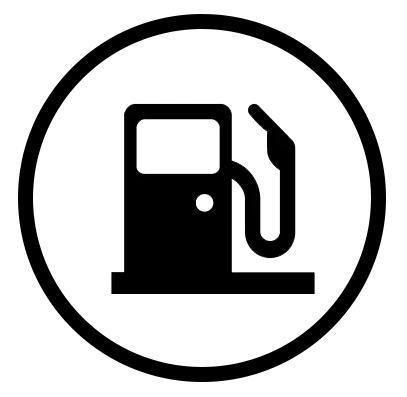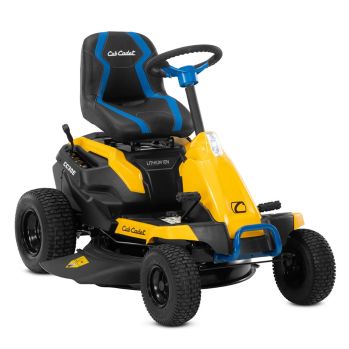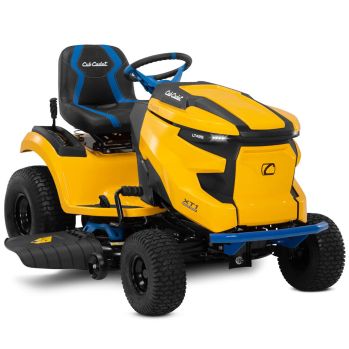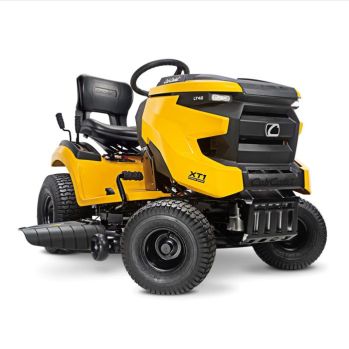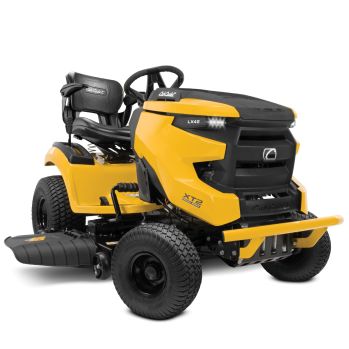Electric Vs Petrol Ride-On Mowers - Which is right for me?

With electric ride on mowers getting better and more affordable all the time, is now the time to switch to electric?
In the past petrol has been the only choice, but as each day goes by there are more and more electric options.
Electric ride on mowers are now comparable to petrol versions in many ways, while offering significant advantages in some areas.
Let’s take a closer look at petrol vs electric ride on mowers and determine which option is best suited to your needs.
|
Electric |
Petrol |
|
|
Maintenance Advantage: Electric |
Electric ride on mowers are comparitively low maintenance, with generally no regular engine maintenance or drive belts to worry about. There are still wear and tear items to replace such as blades and tyres, but batteries and electric motors are generally sealed zero-maintenance units. Ride on mowers can spend a lot of time out in the weather and/or driving through wet grass and mud, so look for good water proofing and high quality secure connections around electrical components. Cheap electric ride on mowers with poor quality electrical components and connections, or inadequate protection against the elements can end up costing a lot to repair or replace when the water inevitibly gets in and causes unit failure. |
Petrol Ride-On Mowers generally require annual or seasonal maintenance. This is usually based around usage hours rather than time intervals. Service intervals are commonly recommended at least every 50 hours, and a regular service usually requires at a minimum: Depending on the age and condition of the unit, extra maintenance such as a carby clean or new tyres may be required. EFI engines may be plugged into a diagnostic machine to help check engine health and quickly diagnose any issues affecting smooth running of the engine. |
|
Run Time Advantage: Petrol |
The duration of lawn mowing with a battery-powered ride on mower is dependent on the battery charge. Therefore, there is a certain limit on how much time you can mow before the battery runs out. Be wary of battery life or mowing area claims as some manuafacturers will quote these assuming perfect conditions with minimal load on the engine and blades, whereas others will claim realistic minimum useage with the unit actually mowing grass in real world conditions. As a rule of thumb, look for a higher AH rating of the battery contributing to a longer run time. Higher battery voltage and higher power wattage of electric motors may contribute to lower run time, but may also result in more powerful and efficient driving and cutting, which may increase real world productivity. |
A petrol ride on mower has an unlimited runtime providing there is fuel on hand to refill the fuel tank. Depending on the size of the fuel tank, some petrol ride on mowers may run for several hours between refuelling stops. For these reasons, petrol ride on mowers are still generally favoured when mowing larger areas, such as farm paddocks, mowing for extended periods of time, or mowing where there is no access to mains power for recharging. |
|
Cost Advantage: Petrol |
Electric ride on mowers are usually more expensive than an equivilent petrol model. In most cases it will cost several thousand dollars more to buy an electric ride on mower of equivilant size. While electric ride ons are getting cheaper there may be a significant quality gap between cheaper and more expensive electric ride on mowers, meaning you may be up for a replacement sooner than you'd hoped when opting for a cheaper model. Upfront costs for electric ride ons are offset by lower mainteance and running costs, although there is an associated cost for electricity consumption when recharging the unit between uses. |
Costs to consider with a petrol ride on mower include the cost of petrol, as well as higher ongoing maintenance costs. Depending on use a petrol ride on may cost $500 a year or more in fuel and regular maintenace. However a petrol unit receiving frequent maintenance can reasonably be expected to run and perform well year after year, and last for as long as you need it to. The same may or may not be true of an electric ride on, with the batteries and electric components generally having a shelf life which will be more or less depending on the manufacturing standards and component quality of the unit in question. When you consider that an equivilent sized electric ride on of suitable quality will cost a few thousand dollars more to buy new, you may be looking at 10 years or more to break even. |
|
Environmental Impact Advantage: Electric |
Mowing with an electric ride on produces fewer if not zero carbon emissions, meaning cleaner air for you and those around you. There is also a lot less noise polution from an electric ride on with generally silent running other than the whir of spinning blades when these are engaged. Offsetting these benefits are the environmental impact associated with the disposal of batteries, in particular lead acid batteries, after they have been used. Overall there is no doubt that electric mowers are cleaner and quieter to own and use than petrol equivilents, and your neighbours will also be happier with the low noise, especially if you like to mow in the early mornings! |
Petrol engines produce carbon emissions when in use, and they are also significantly louder than electric ride-on mowers. There is also petrol and oil refilling and oil disposal to consider with a petrol ride on. Overall, petrol ride on mowers tend to be a lot messier, noisier and smellier than their electric equivilants. |
|
Power & Performance Advantage Petrol |
Electric ride on mowers often claim to offer equivilent power and performance to petrol alternatives, however this needs to be taken in the context of the conditions in which it is operating. Electric ride on mowers may offer equivilent performance, when regularly mowing a well maintained lawn. However power loss can be a factor when mowing longer or wet grass. If the motors driving the blades are not up to the task they may slow down or even stop altogether when the going gets tough. There is also less ability to regulate power in the same way that a variable throttle may do in a petrol ride on.
|
Petrol ride-on mowers generally still outperform electric ride-on mowers in terms of power and are usually better suited to tougher conditions and thicker grass. There are usually also more power options in a manufacturer's petrol ride on mower range. If a lesser model doesn't have enough power for your intended application, you will likely find a model higher in the range with a bigger engine, and more horsepower. While some electric ride ons may be as powerful as some petrol units in certain applications, a petrol ride on will almost certainly offer more bang for your bucks than a similarly priced electric unit. |
SUMMARY:
Choosing between a petrol or an electric ride on mower really comes down to your personal priorities, and the requirements of the job at hand.
If you prioritize power, cutting performance and lower upfront cost, a petrol ride-on is likely to still be your preferred better option.
While an electric ride-on mower is likely to suit someone living in a residential or semi-rural area (mowing a couple of acres or less), and those who prioritize a clean, quiet, low maintenance mowing experience.
The best way to assess whether a petrol or an electric ride on is best for you may be to simply test drive both and see which one feels right!
Your local Cub Cadet dealer has a range of petrol and electric ride on mower options in stock for you to sit on, drive around, and get a good feel for the pro's and con's of both.
Arrange a hands on demonstration and test drive with your local Cub Cadet dealer:
Thanks for reading!
If you know someone interested in Electric vs. Petrol Ride-on Mowers, please feel free to share this article.
To stay up to date with new articles as they drop simply bookmark our blog page, and check in regularly, or follow us on Facebook and Instagram!


